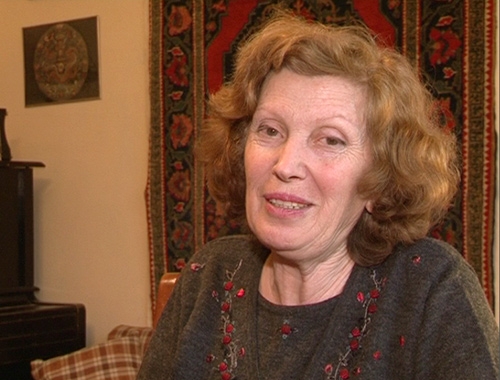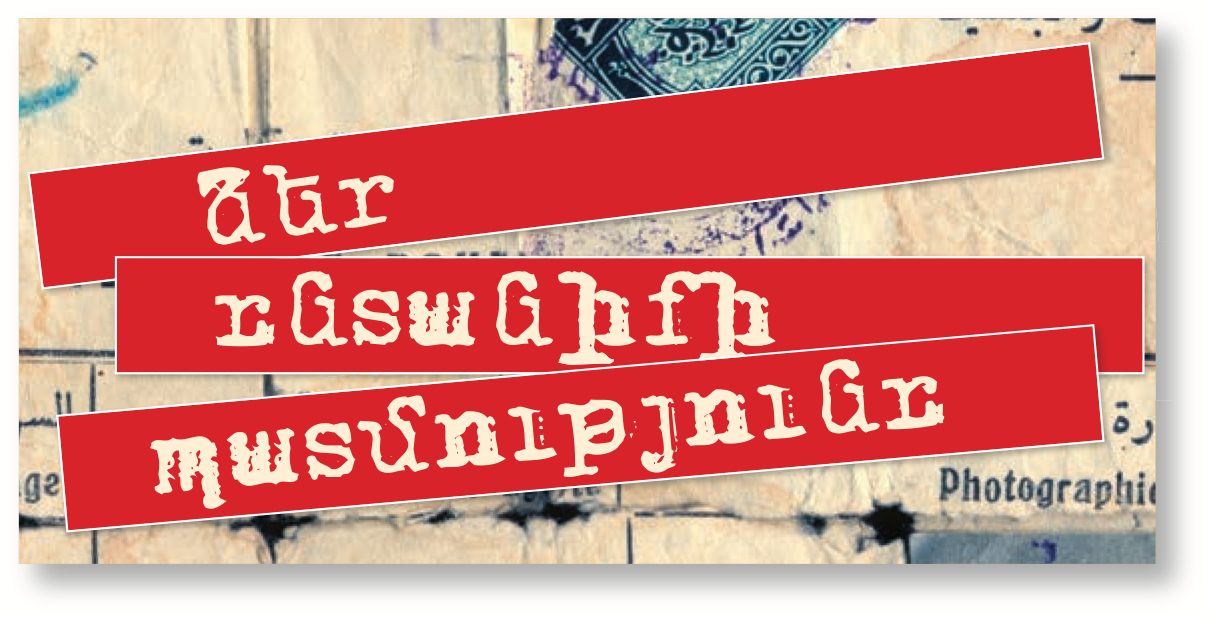 Repatriated from Cairo, 1947 / Lives on Yerevan
Repatriated from Cairo, 1947 / Lives on Yerevan
Emilia Ohanian
My father was born in an orphanage, and his dream was to live in the homeland. The repatriation was organized in 1946 and my father did everything to get on the first caravan to Armenia.
My father was disabled in World War II. He had two small male sons. My mother was pregnant with me. When they were placing the goods on the ship to Armenia, Mampre Srpazan, our spiritual leader in Egypt, summoned my father one night. The srpazan was also kneeling, “Ashot, don’t go to the homeland. It’s not what you think. If you go, your children will be destroyed, and you.” My father used to say that he crazily pushed that man aside and said, “You are a traitor. You are a Dashnak and don’t want to save the homeland.”
The next day we boarded the ship Pobeda. Since it was the tradition of the Arabs not to approach a pregnant woman, they didn’t search my mother. All of family’s riches, from the savings my father made by operating garages in Cairo and Alexandria, were in the coat up sewn by my grandmother. My mother would say that she couldn’t move from the fear that something would fall out while sitting.
The others were singing and dancing, but only until reaching Batum.
There, they were told to toss all their food – bananas, oranges – into the sea, arguing it could cause an infection. The food was floating on the surface and people would swim out from the shore to collect it. In Batum they gave everyone a piece of muddy bread.
At the Yerevan station, without asking anyone, they seated people in trucks and drove towards Leninakan. At every village along the way, one or two families were randomly selected and dropped off. Thus, our family was dropped off in the village of Vardakar, in the Artik area. The village council president gave them one room with a dirt floor. Conditions were awful.
My father immediately demanded that they be sent back to Yerevan. They answered that it had snowed overnight and the roads were closed.
My mother handed out soap and medicines she had brought with her to the villagers. They appointed her as the nurse there. I was soon born according to the manner accepted at the time there. They took ashes from the tonir and spread them on the floor. That’s where the baby is delivered.
The next absurdity was that my birth was registered several months later, when the snows had melted and the roads opened. The village council president went to Artik, not remembering the names or surnames of the newly born. He remembered by name of Ohanian as Hovhannisyan. He completely forgot the name given me by my parents – Asdghig – and registers me under the name of Emilia, a girl he loved in Germany during the war.
Later, we were able to correct my last name, but the authorities refused to change my first name.
My father was exiled in 1949. One night, a car pulled up and three men got out wearing long leather trench coats. They arrested my father. They kept him at the KGB cellars from two years. He was a very good mechanic. They had brought lathes from Germany to the HayElectro factory. For two years they took my father to operate the machinery and train specialists. He told us that they blindfolded him every time he entered the factory.
Stalin later issued an order that political prisoners didnlt have a right to stay at their residences. They took my father to Siberia, When I read about the prisons he was in, I’m amazed that he was such a strong man who resisted. He would say that they’d carry sacks on their heads and were beaten by four-five guys with boots.
And do you know what that man’s sin was? We found it out when he was exonerated, it was because he didn’t like the homeland.
The investigator on my father’s case (I have his name written down), collected all the documents from the house and never returned them.
One of the five cellmates of my father in the Vladimiryan prison in Siberia was Garegin Nzhdeh. He spoke about his last days – a man like Nzhdeh was powerless, with swollen feet, laying down… Three of the six were there for criminal cases and three for political reasons. My father said that they would persecute the political ones. One of the criminals was from Sari Tagh, another from Yonjalakh, and the third, I can’t remember. One day, while playing cards, Nzhdeh sat up in his cot, looked down and said, “Oh wretched Armenia, if this is your future.”
My father would sing a song. I only know it was written in prison. When I was writing an article about Nzhdeh, I found out that Nzhdeh wrote it.
My friend, born of the banks of the Araz,
I die for that Araz.
My friend, tortured in dark prisons,
I die for your holy torture.
After Stalin, excuse me for saying, dropped dead, my father returned. And my mother was burdened with another label, in addition to being an akhpar, and was called the wife of a political prisoner. My mother was twenty-three, a beautiful woman, with three young children in tow.
This woman, who was used to the good life, despondent, worked on the Monument, where Stalin’s statute was to be erected. She directed the cranes. They regarded her as a specialist. When they were building the post office building at Republic Square, they gave us temporary housing right in the courtyard. Then, they allotted us a one room apartment.
I remember a terrible incident from my childhood. As a repatriate, it will never be erased from my mind. It goes without saying that our language was influenced by western Armenian, even though my parents tried to speak eastern Armenian. In elementary school, I had a very good Russian teacher. She was up in years and always helped me. You know she said, the repatriates mix “t” for “d” and the letters “b” and “p”. And that elderly teacher helped me to fix that.
Then, she was replaced by another Russian teacher; a Russian named Nina Ivanovna. On the chalkboard I again confused “d” for “t”, and the children said “He always mixes them up because he’s a repatriate.” And some kind of evil descended on that woman. She pulled on my black apron so hard that it ripped. I came home crying.
My father, who had just returned from exile, went to the school and created an uproar. But I’ll never forget what happened.
My father’s patriotism always stupefied me. Even in situations like that he would always say that the homeland was different and that we should understand that all this wouldn’t last long and that Armenia would be free. When he came back from the deportation, he’d sing all the banned patriotic songs. My mother would say, “Didn’t you eat enough ice? You want more?” He’d say, “Let me eat. But our kids will know who we are.”



















